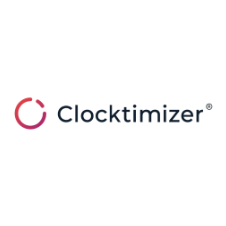Clocktimizer webinar wrap up: Two practical solutions to improve financial hygiene and increase profitability
Recently we teamed up with fellow legal tech solution TiQ to host a webinar. In it we had a look at the relationship between good financial hygiene and profitability for law firms. For many, good financial hygiene is profitability. However, for Nick Schills, CEO of TiQ and Pieter van der Hoeven, CEO of Clocktimizer, the two have a far more complex relationship.
During the webinar they walked through the importance of good data as a foundation of firm-wide financial health. They also shared the way their platforms can improve the collection and analysis of law firm narratives to achieve better financial insights. For those that couldn’t attend, we’ve put together a quick wrap up of the most important points they shared. Find our video recording of the webinar here.
So what is financial hygiene and why should firms care?
At the outset, both Pieter and Nick were keen to stress that financial hygiene goes far beyond the outward appearances of success. Being profitable comes after a long line of internal steps which firms must take to ensure their success. When you truly understand what happens internally, how much services and goods cost, you can make better decisions for long term profitability. Without that foundation in data you are resorting to guesswork.
Financial hygiene at its core is:
“A set of rules and processes that define the way data is used and stored in a law firm”
Pieter van der Hoeven, Co-founder and CEO of Clocktimizer
How can you ensure data quality?
To ensure that your firm is collecting and managing data well, our panelists shared four core methods to care for the lifecycle of data collection and use in a firm.
Create rules – Begin by defining what good data collection looks like. In a law firm this means accurate and well defined narratives in timecards.
Enable people – Having established how to record time well, ensure your firm offers sufficient training and tools to enable this behaviour.
Engage people – Hand in hand with training and tools comes motivation. People are more likely to adhere to the rules if they understand why they are important
Give feedback – The final step in the process is to ensure you identify how well people are complying to your data collection rules. If they are having difficulties, identify why and consider improving your earlier steps.
Nick highlighted the importance of highlighting how timecard data is used in a law firm. Where lawyers understand that timecard data is not used only for billing, but also for process improvement and client value, they are more likely to record narratives of a higher data quality.
Additionally, this will ensure that lawyers record time, even where it is not essential to billing. Many firms have a policy of not recording unbillable hours. However, this is still important data for financial hygiene. Educating lawyers as to the purpose of timecard narratives will have a knock on effect on data collection and quality.
Make improvements now to improve reporting later
For both Nick and Pieter, data quality is a task which must be addressed sooner rather than later. Poor data will go on to affect everything from financial reporting to legal operations. After all, inaccurate data can only produce inaccurate insights.
“When you develop reports you begin to understand the relationship between good data quality and better outcomes down the road. Either you improve data after it has been collected which is very expensive, or you start with better data from the beginning.”
Pieter van der Hoeven, Co-founder and CEO of Clocktimizer
In order to ensure the greatest possible change from the get go, Pieter suggested identifying how better time recording will benefit lawyers directly. His advice included reading the book “Our iceberg is melting” which breaks down the different ways people are motivated to act. By identifying the underlying incentives to improved data collection law firms can improve data quality.
How technology supports financial hygiene
Finally, both of our panelists rounded off the webinar with a demo of the ways technology can support law firms in improving their financial hygiene. Both TiQ and Clocktimizer are designed to improve narrative quality and analysis without demanding lawyers fundamentally change the way they work.
For TiQ, the emphasis is on integrating with existing workflow management systems to automatically provide narratives of higher quality. These narratives are also compliant with billing requirements, meaning they reduce the number of disputes. Better yet, improved narrative quality also has a direct effect in improving data insights in Clocktimizer.
Clocktimizer automatically categorises narratives into activities so you can identify who is doing what for whom. In turn, this leads to clear insights for pricing, budget management and process improvement.
For more information on how Clocktimizer and TiQ support better financial hygiene for law firms, get in touch to request a demo.



